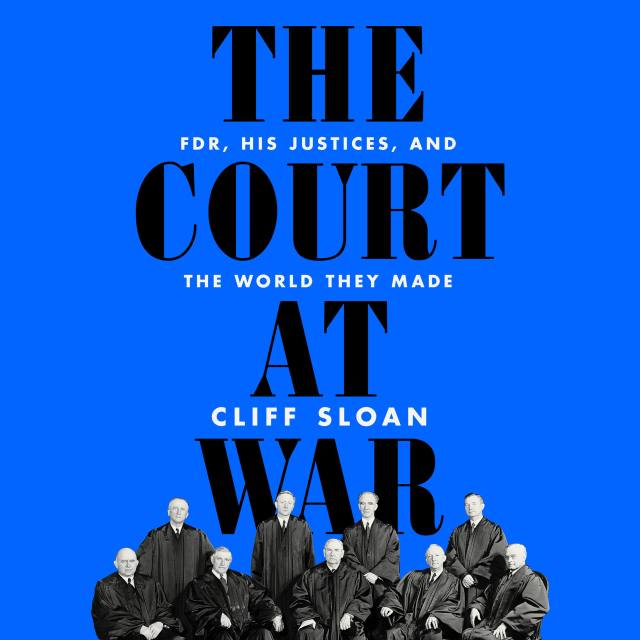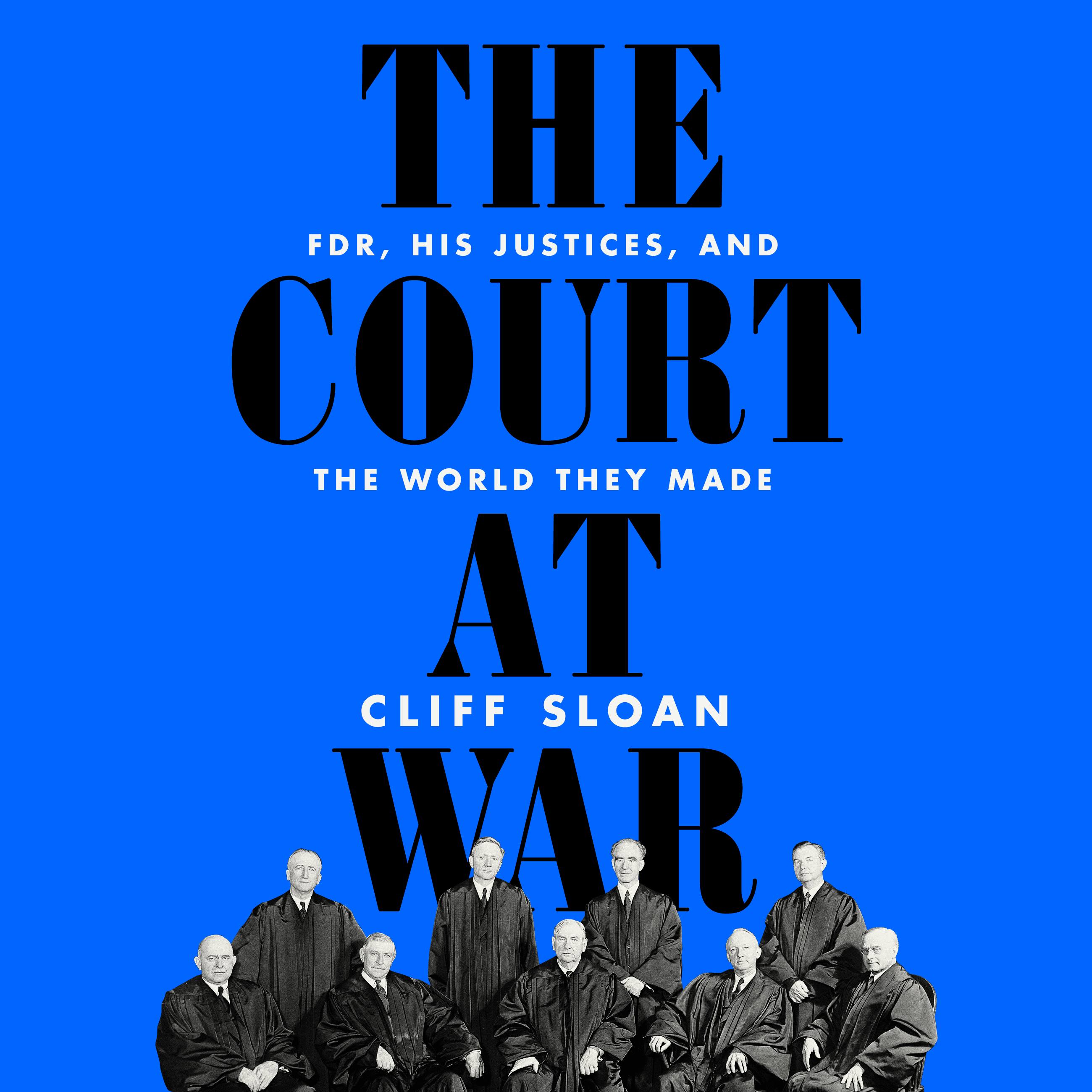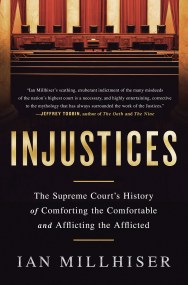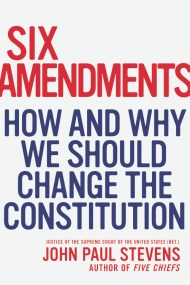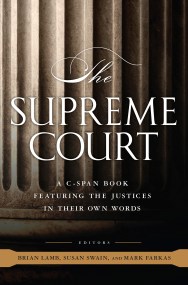Promotion
Use code MOM24 for 20% off site wide + free shipping over $45
The Court at War
FDR, His Justices, and the World They Made
Contributors
By Cliff Sloan
Read by Brian Troxell
Formats and Prices
Price
$31.99Format
Format:
- Audiobook Download (Unabridged) $31.99
- ebook $19.99 $25.99 CAD
- Hardcover $32.50 $41.00 CAD
This item is a preorder. Your payment method will be charged immediately, and the product is expected to ship on or around September 19, 2023. This date is subject to change due to shipping delays beyond our control.
Also available from:
By the summer of 1941, in the ninth year of his presidency, Franklin Roosevelt had molded his Court. He had appointed seven of the nine justices—the most by any president except George Washington—and handpicked the chief justice.
But the wartime Roosevelt Court had two faces. One was bold and progressive, the other supine and abject, cowed by the charisma of the revered president.
The Court at War explores this pivotal period. It provides a cast of unforgettable characters in the justices—from the mercurial, Vienna-born intellectual Felix Frankfurter to the Alabama populist Hugo Black; from the western prodigy William O. Douglas, FDR’s initial pick to be his running mate in 1944, to Roosevelt’s former attorney general and Nuremberg prosecutor Robert Jackson.
The justices’ shameless capitulation and unwillingness to cross their beloved president highlight the dangers of an unseemly closeness between Supreme Court justices and their political patrons. But the FDR Court’s finest moments also provided a robust defense of individual rights, rights the current Court has put in jeopardy. Sloan’s intimate portrait is a vivid, instructive tale for modern times.
Genre:
-
“The story of FDR’s unsuccessful effort in the late 1930s to ‘pack’ the Supreme Court is well known. The Court at War tells the fascinating story of what happened later. As FDR filled numerous Court vacancies, and the country became engulfed in WWII, he ended up getting the supportive Court he had long wanted. Cliff Sloan’s deeply researched account of relations between the ‘War Court’ and FDR during the early 1940s—complete with insightful portraits of the justices—demonstrates we still live in a legal world shaped by the events of those momentous years.”Annette Gordon-Reed, Pulitzer Prize–winning historian
-
“Although much has been written about the government’s actions during World War II, this is the first in-depth examination of the Supreme Court during this time. Sloan’s beautifully written book tells this story and makes it compelling by focusing on the people involved in litigating and deciding the cases. The book is filled with a wealth of new information and will surely be regarded as the definitive work about the Court during this pivotal point in American history.”Erwin Chemerinsky, dean, Berkeley Law School
-
“So much has been written about FDR’s battle with the Supreme Court, not enough about the operations of the court he then assembled. With the insight of a lawyer and the craft of a storyteller, Sloan provides a compelling, textured account of the third branch at a pivotal moment in history. The Court at Waris a gripping, behind-the-scenes look at an institution that at times rose heroically to the moment, producing enduring victories for free speech and civil liberties, and at times shamefully succumbed to the perceived needs of a nation at war and the ugly prejudices of the era. At a time when the high court is again in the headlines and under scrutiny, Sloan’s rich portrait of the justices and the president with whom they served—often too closely—offers a timely reminder of the achievements, and imperfections, of a court whose lessons resonate today.”Ruth Marcus, Washington Post columnist
-
“In this masterful new book, Sloan sheds revelatory light on a pivotal period in American law. Weaving together painstaking archival research, close readings of legal briefs and judicial opinions, and absorbing descriptions of the lives and relationships of the Court’s justices—including their relationships to the larger-than-life president who appointed them—Sloan reveals the long shadow of the war not only on familiar cases like the Nazi saboteur case Ex parte Quirin and the infamous Korematsu v. United States, but also on disputes involving compulsory flag salutes, forced sterilization, and all-white primaries. The book is essential reading—and an urgent reminder of the degree to which the Supreme Court has always been embedded in the larger political life of the nation.”Kate Shaw, ABC News commentator, cohost of Strict Scrutiny podcast, and professor, Cardozo Law School
-
“The Court at War provides an in-depth look at the workings of the US Supreme Court and the relationships among the justices and political officials during World War II, including how, at times, it was a court at war with itself. Sloan has written a thoroughly engaging account that helps us to understand better a court that produced remarkable changes that advanced civil rights and civil liberties in the context of voting rights for African Americans, free speech rights for disfavored religious minorities, and reproductive rights while simultaneously producing the civil-rights disaster in its cases involving the treatment of Japanese Americans.”Robert Chang, Korematsu Center for Law and Equity
-
“Conventional wisdom suggests we know all we need to know about FDR and the Supreme Court. Thank goodness Sloan has excavated the much more interesting and dramatic saga of the wartime Court and its eerie echoes to today.”Ken Burns, filmmaker
-
“A wide-ranging legal history that shows that the Supreme Court is never truly divorced from the politics of the day.”Kirkus
- On Sale
- Sep 19, 2023
- Publisher
- Hachette Audio
- ISBN-13
- 9781668632895
Newsletter Signup
By clicking ‘Sign Up,’ I acknowledge that I have read and agree to Hachette Book Group’s Privacy Policy and Terms of Use
